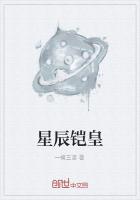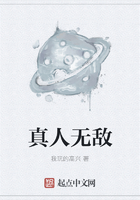除夕之夜,一位老人站在窗前。他的眼里充满哀伤,仰望着深蓝色的天空,那儿,星星如清澈平静的湖面上飘动的朵朵白莲;后来,他将目光转向地面,几个比他更加绝望的人正在走向人生的终点——坟墓。在通往人生终点的道路上,他已走过了60多个驿站,他一无所获,只有过失和悔恨。现在,他体弱多病,精神空虚,心情忧郁,缺少晚年应有的舒适和安逸。
青春的岁月如梦幻般浮现在他眼前,他回想起父亲将他放在人生岔路口上的关键时刻,当时,他面前有两条路:一条通向和平宁静、阳光灿烂的地方,那里到处是花果,到处回荡着柔和甜美的歌声;另一条则通向黑暗无底的深渊,那里流淌着毒液而不是清水,恶魔肆虐,毒蛇嘶嘶爬动。
他仰望天空,痛苦地哭喊:“喔,青春,你回来吧!喔,爸爸,请把我重新放到人生的路口上吧,我会做出更好的选择。”然而他的父亲和他的青春年华皆离他远去。
他看见灯消逝在黑暗中,那便是他虚度的时光;他看见一颗星星从空中陨落、消失,那是他自身的象征。悔恨如同一支利箭,深深地刺进他的心。接着,他想起童年时代的朋友,他们曾与他一同踏上人生的旅程,现已获得成功,受到人们的尊敬,此刻正在幸福中欢度除夕。
教堂塔顶的钟声响了,使他回忆起父母早年对他的爱,他们曾给予他谆谆教诲,曾为他的幸福祈祷上帝。可他偏偏选择人生的歧途。羞愧和忧伤使他再也不敢正式他父亲所在的天堂。他黯然的眼中饱噙着泪水,在绝望中,他竭力高喊:“回来吧,我那逝去的年华!回来吧!”
青春真的回来了,因为以上所发生的一切只是他在除夕所做的一场梦。他仍旧年轻,当然他真的犯有过失;但还未堕入深渊;他仍然可以很容易地走上通向宁静和光明的道路。
在人生路口徘徊,不知该不该选择光明大道的年轻人啊,你们千万要记住:当你青春已逝,双足在黑暗的群山中举步维艰地前行之时,你才痛心疾首地呼唤:“喔,回来吧、青春!喔,把我的美好年华还给我!”,这只会是徒劳无益的。
Tolerance
It is curious that our own offenses should seem so much less heinous than the offenses of others. I suppose the reason is that we know all the circumstances that have occasioned them and so manage to excuse in ourselves what we cannot excuse in others. We turn our attention away from our own defects, and when we are forced by untoward events to consider them, find it easy to condone them. For all I know we are right to do this; they are part of us and we must accept the good and bad in ourselves together.
But when we come to judge others, it is not by ourselves as we really are that we judge them, but by an image that we have formed of ourselves fro which we have left out everything that offends our vanity or would discredit us in the eyes of the world. To take a trivial instance: how scornful we are when we catch someone out telling a lie; but who can say that he has never told not one, but a hundred?
There is not much to choose between men. They are all a hotchpotch of greatness and littleness, of virtue and vice, of nobility and baseness. Some have more strength of character, or more opportunity, and so in one direction or another give their instincts freer play, but potentially they are the same. For my part, I do not think I am any better or any worse than most people, but I know that if I set down every action in my life and every thought that has crossed my mind, the world would consider me a monster of depravity. The knowledge that these reveries are common to all men should inspire one with tolerance to oneself as well as to others. It is well also if they enable us to look upon our fellows, even the most eminent and respectable, with humor, and if they lead us to take ourselves not too seriously.















